According to the American Cancer Society, over 40,000 new cases of oral cancer will be diagnosed this year. Unfortunately, many people don’t realize they have oral cancer until it’s too late. In honor of Oral, Head, and Neck Cancer Awareness Week (April 22-28), Dr. Locke offers this fact sheet to help you better understand oral cancer.
What is Oral Cancer?
Oral cancer is a type of cancer that develops in the mouth. Oral cancer is divided into two categories: oral cavity cancer and oropharyngeal cancer. The oral cavity includes the lips, teeth, gums, lining of the lips and cheeks, front of the tongue, and the floor and roof of the mouth. The oropharynx includes the base of the tongue, soft palate, tonsils, and throat.
Who’s at Risk for Oral Cancer?
The American Cancer Society reports that oral cancers are twice as common in men as in women. Additionally, two-thirds of oral cancer patients are 55 and older. Other risk factors include:
- Tobacco use
- Alcohol use
- Frequent sun exposure
- Poor diet
- HPV infection
- Weakened immune system
- Family history
What are the Symptoms of Oral Cancer?
The most common symptoms of oral cancer include:
- Sores in the mouth that bleed easily or don’t heal
- Pain that doesn’t go away
- Lump or thickening in the cheek
- White or red patches on gums, tongue, tonsils, or lining of mouth
- Sore throat or feeling that something is caught in throat
- Difficulty chewing, swallowing, or moving the jaw or tongue
- Numbness or swelling of any area in the mouth
- Voice changes or hoarseness
- Lump in the neck
- Constant bad breath
- Changes in tissue color
- Constant earache
How can Oral Cancer be Detected?
The Oral Cancer Foundation reports that one person dies from oral cancer every hour. However, when detected and treated early, oral cancer has an 80 percent survival rate. At your regular dental checkups, Dr. Locke will perform an oral cancer screening to detect changes and tissue abnormalities. If he suspects oral cancer, he may refer you to an oral surgeon, radiation oncologist, or medical oncologist for treatment.
Limiting tobacco and alcohol use, and visiting Dr. Locke for regular checkups, can greatly decrease your risk of oral cancer. Contact our Waco dentist office at (254) 776-4888 to request a checkup and oral cancer screening. We welcome patients from Waco, Woodway, McGregor, Hewitt, and the surrounding Central Texas area.

